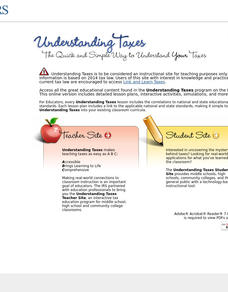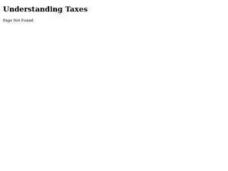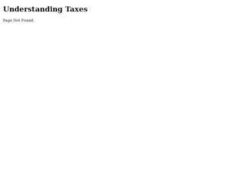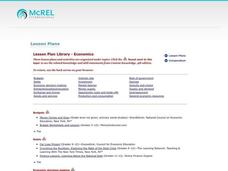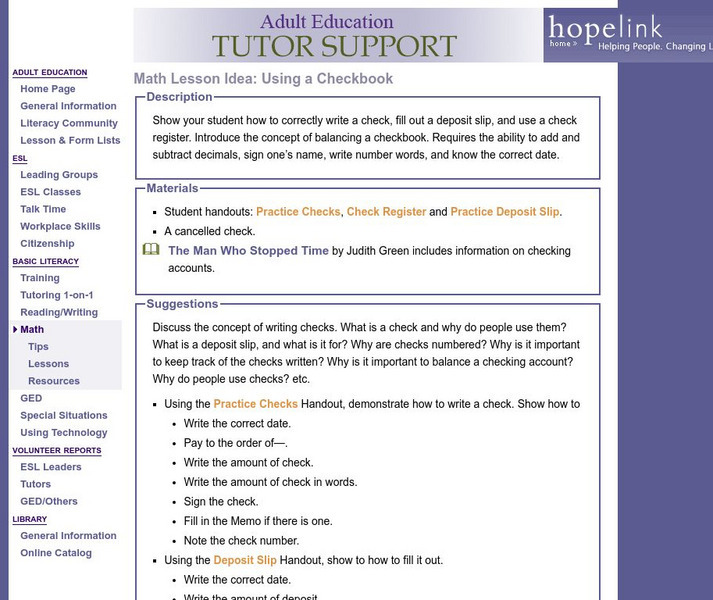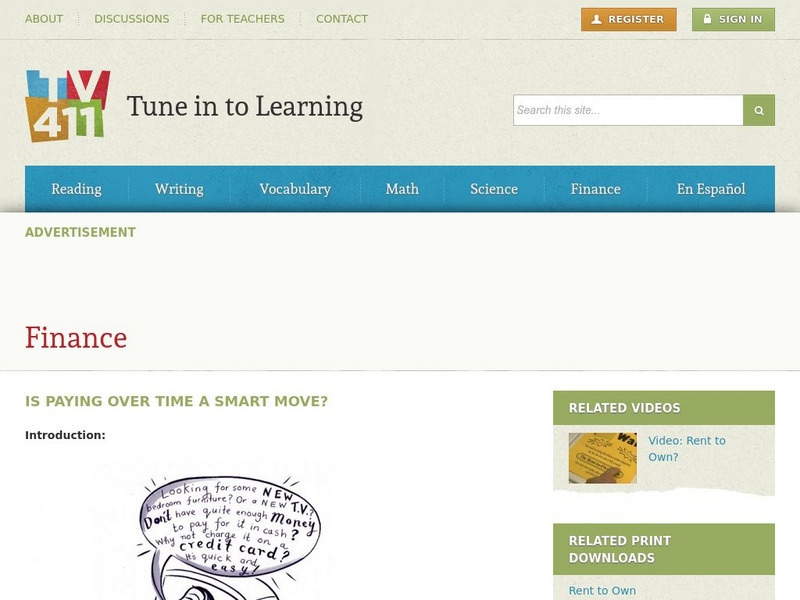Curated OER
Fairness in Taxes
Students identify and describe two criterion of tax fairness: benefits received and the ability to pay and distinguish between wealth and income as measures of ability to pay.
Curated OER
What is Taxed and Why
Students are exposed to the need for federal, state and local governments to tax constituents to provide goods and services for their residents. They identify the different kinds of taxes and give examples of the goods and services taxed.
Curated OER
The Taxpayer's Rights
Students examine rights of taxpayers and procedures the IRS uses to process tax returns
Curated OER
The Taxpayer's Responsibilities
Students explore system of voluntary compliance, and describe taxpayers' responsibilities related to filing a tax return.
Curated OER
The Wealth Tax of 1935 and the Victory Tax of 1942
Students explain that during the Great Depression and World War II, the Roosevelt administration implemented new, broader, and more progressive taxes in order to cover the costs of the New Deal programs and the war.
Curated OER
Micro Economics - Personal Budgeting
High schoolers explore the real world as it relates to money and how people use it. In this money management lesson, students jump into the real world as they role play with money through spending, saving, being married, single, having...
Curated OER
Lesson 2: How Taxes Evolve
Twelfth graders examine the legislative process of enacting federal income tax laws. They conduct research and report on the Federal Migratory Waterfowl Stamp (Duck Stamp) Act of 1934.
Other
Kodak Lesson Plans: Math
Kodak's site has five lesson plans integrating photography into math lessons. Activities involve geometry and other math concepts for fourth grade on up.
University of Regina (Canada)
University of Regina: Math Central: Stewart Resources Centre: Consumer Wise [Pdf]
A tenth-grade math unit, developed in 1993 by a Saskatchewan teacher, on budgeting.
Other
Federal Reserve Bank of New York: Econ Explorers Journal [Pdf]
In this collection of lesson activities, students will complete an "Econ Explorers Journal" to help them learn how economics is involved in their neighborhood, the books they read, in earning a living, at their banks, in their homes, and...
Hopelink
Hopelink: Using Your Checkbook: Eastside Literacy Program
Show your student how to correctly write a check, fill out a deposit slip, and use a check register. Introduce the concept of balancing a checkbook. Requires the ability to add and subtract decimals, sign one's name, write number words,...
Education Development Center
Tune in to Learning: Is Paying Over Time a Smart Move?
At T.V. 411 you can explore the concept of paying over time with situations involving credit cards, rent to own items, and more. This interactive lesson gives the learner an opportunity to make decisions about money management.
